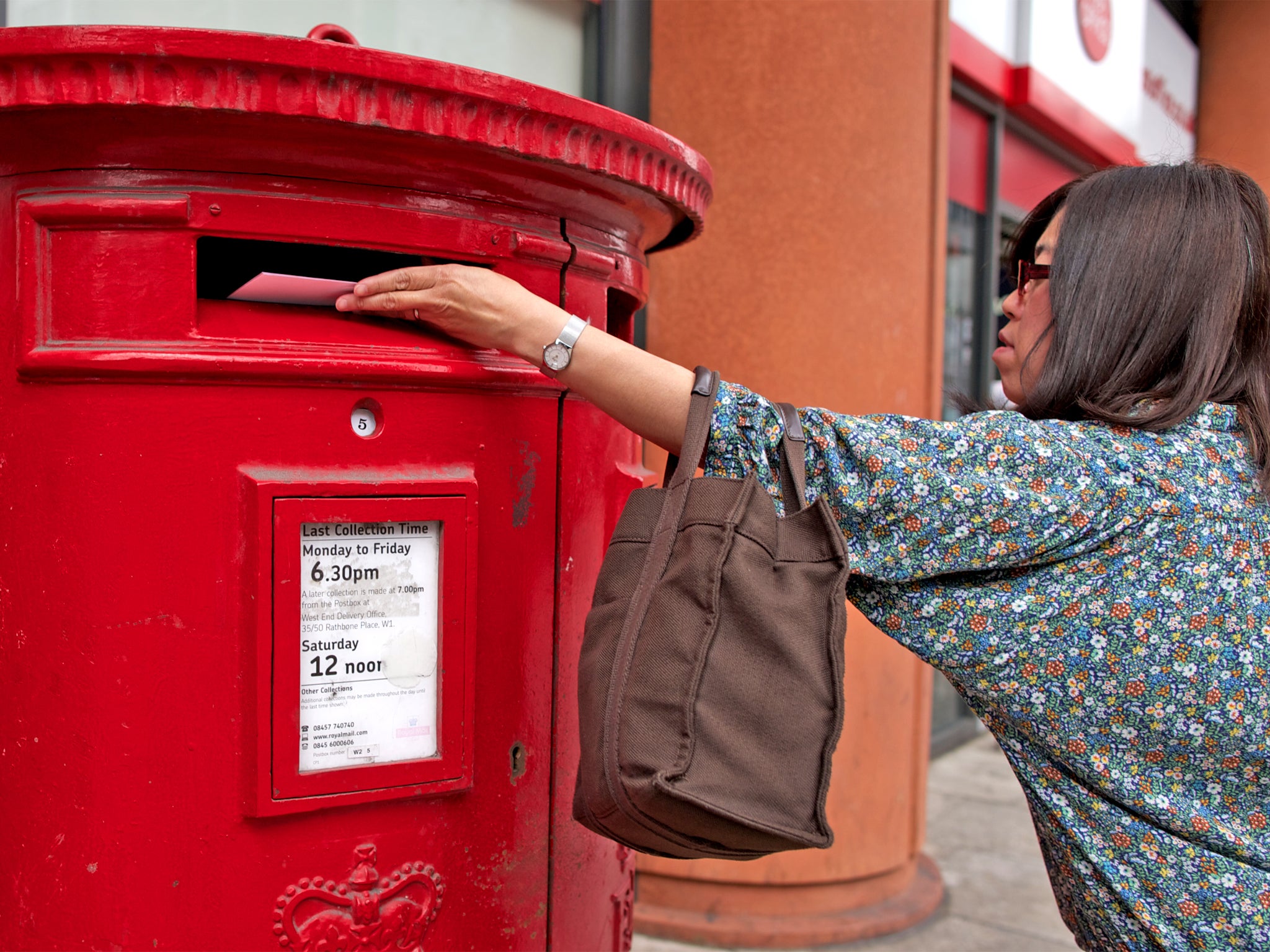Banks to earn millions in Royal Mail privatisation
Of the seven City institutions appointed to steer through the IPO, only one is British

Seven City investment banks led by Goldman Sachs are set to share fees of up to £30m from the privatisation of Royal Mail.
As the Business Secretary, Vince Cable, set out details of a planned stock market flotation of the postal services, it emerged that only one of the institutions, Barclays – which has a smaller role as sponsor – is British.
It is the Swiss bank UBS which joins Goldman in leading the expected initial public offering (IPO), while ministers have also signed up Merrill Lynch, Investec, Nomura and RBC Europe. At the usual fee of around 1 per cent, and Royal Mail's expected valuation of between £2bn and £3bn, they can expect to earn millions each.
The Government has also hired the City PR firm Citigate Dewe Rogerson to spin the sell-off, and the law giants Linklaters and Freshfields Bruckhaus Deringer for legal work on the biggest privatisation since John Major sold off the railways in the 1990s.
Mr Cable told Parliament yesterday that a sale was vital as "the public will always want to invest in schools and hospitals ahead of Royal Mail".
He said 150,000 postal workers would be handed a 10 per cent stake in the company for free, in the largest employee share scheme of any privatisation for almost three decades. Royal Mail's 150,000 staff would be given stakes worth up to £300m, or about £2,000 each.
Mr Cable stopped short of an official intention to float declaration, which would trigger a four-week countdown for a listing to take place, instead saying an IPO was the Government's "preferred option".
It is expected to take place between now and April.
The public will be able to buy shares through a retail offer, but it won't be so much "Tell Sid", as in British Gas's privatisation, more email him: the share sale will be promoted via "online channels," a Treasury source said.
The Government is to retain a minority stake in Royal Mail, but the size of it and how much it privatises will "be influenced by market conditions at the time of a transaction and investor demand", Mr Cable added.
That investor demand could be dampened by union moves: staff have voted against privatisation and members of the Communication Workers Union are threatening strikes. The union's general secretary, Billy Hayes, said the sell-off would "destroy postal services". He said a ballot of members regarding strike action could be held on 31 July.
But Mr Cable told Parliament: "Royal Mail needs future access to private-sector capital because the postal market is changing... it cannot be right for [it] to come cap in hand to ministers each time it wants to invest and innovate. The public will always want government to invest in schools and hospitals ahead of Royal Mail."
The shadow Business Secretary, Chuka Umunna, said: "Having nationalised the organisation's debts by taking on [Royal Mail's] pension liabilities, they now want to privatise the profit at the very time it is making money."
Q&A: Delayed delivery on sale
Q. Why has it taken so long?
Legislation to privatise Royal Mail was passed in 2011 and followed failed attempts by the Tories in the 1990s. Lord Mandelson had the unsuccessful idea of selling off a third of Royal Mail in 2009. Even Margaret Thatcher said she was "not prepared to have the Queen's head privatised".
Q. Why is the Government privatising Royal Mail?
It's part of its garage sale to raise money. Although Vince Cable also claims it's because the "postal market is changing; the number of letters we send is declining, while the number of parcels is growing as online shopping becomes more popular. But Royal Mail in the public sector has its hands tied in a way its competitors here and in Europe do not."
Q. How do I get shares?
The Government will release a prospectus describing the offer. For now, potential investors can register their interest with a stockbroker.
In the post: 500 years of history
1512 Brian Tuke, a former King's Bailiff, is made Master of the Posts by Henry VIII and builds a network of postmasters across England.
1635 Charles I makes the postal service available to the public, before Charles II established the General Post Office in 1660.
1793 First uniformed postmen.
1840 First adhesive postage stamp, the Penny Black.
1852 First pillar box erected.
1881 Postal order introduced, followed two years later by a parcel service.
1968 Second-class stamps introduced.
1990 Parcels business rebranded as Parcelforce.
2001 Service renamed Consignia in a rebranding exercise costing £2m.
2002 Service renamed Royal Mail Group with key brands Post Office, Royal Mail and Parcelforce.
2006 Royal Mail loses monopoly on the postal service.
2007 Plans to close 2,500 Post Office branches announced.
2009 Labour's attempt to part-privatise Royal Mail fails after union opposition.
2010 Coalition plans to sell the delivery business but retain the Post Office network in public ownership.
2012 Government takes on Royal Mail pension scheme.
Subscribe to Independent Premium to bookmark this article
Want to bookmark your favourite articles and stories to read or reference later? Start your Independent Premium subscription today.

Join our commenting forum
Join thought-provoking conversations, follow other Independent readers and see their replies